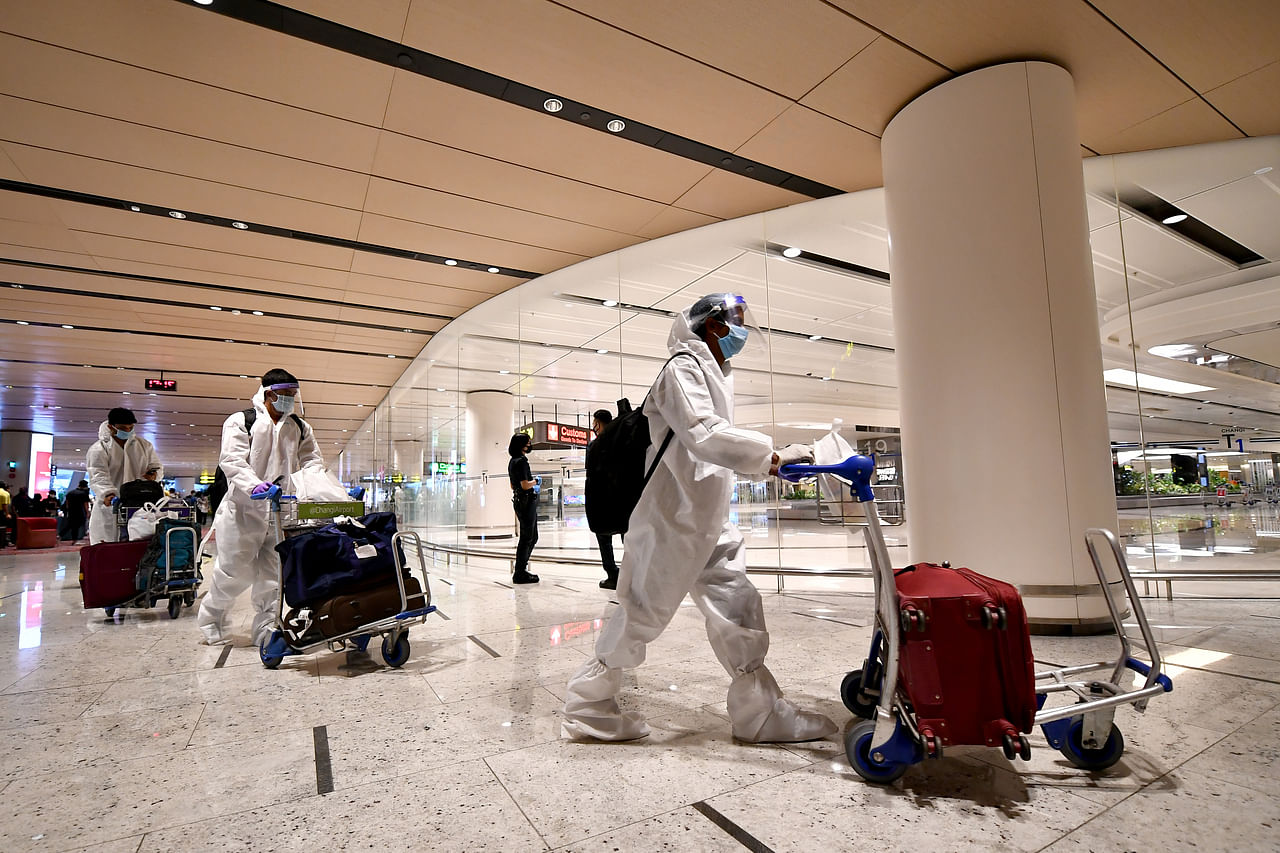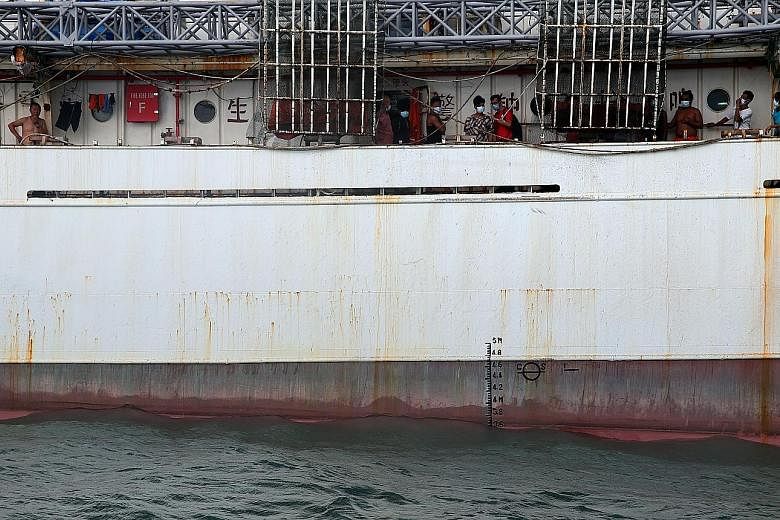Thousands of seafarers around the world have been stuck on ships for about a year or longer due to the coronavirus pandemic.
The prolonged time at sea is taking a heavy toll on crew. The Sunday Times looks at the plight of the sailors.
Feels like prison: Seafarers stuck on board due to Covid-19
Mr Chris Moises Canaveral, a third mate on board a 22,000-tonne tanker, has not stepped on land in 10 months. He expects to still be out at sea come Christmas and New Year.
He said he is used to it. He first set foot on a merchant ship 10 years ago, when he was 26. Since then, he has been home to celebrate Christmas with his family just four times. "It's hard, but we're seamen. We're used to isolation and solitude," he said.
Even so, this is the longest he has been away, and it is already feeling like he is "in prison, with a bunch of very grumpy men".
Mr Canaveral is one of more than 400,000 seafarers around the world who have had to remain on board their ships for about a year or longer because of the coronavirus pandemic. They are not meant to be working for more than 11 months in a row, but some of his shipmates have been stuck at sea for up to 18 months.
With tough health protocols everywhere, there are very few ports that allow the crew of cargo and cruise ships to come ashore.
Indonesian seafarer has not been home for 2½ years

Indonesian Samfarid Fauzi has not been home for 2½ years.
His anxious wife does not even know the whereabouts of her husband, who is working on a Chinese-owned fishing vessel.
The shipowner, via an agency in Indonesia, blamed the coronavirus for the delayed repatriation, and broke several promises that her husband would return home, Ms Ingrid Frederica, 31, told The Sunday Times on Thursday at her rented home in Tegal, a city in Central Java province.
Mr Samfarid signed a two-year contract beginning in April 2018 to work for Indonesian fishing boat agency Puncak Jaya Samudra, which is owned by a Chinese company.
Though sailors should not work more than 11 months in a row, many Indonesian seafarers on fishing boats are given the option of only a two-year contract.
Crew change in Singapore back up to 75%, with international cooperation at forefront of efforts

Singapore has managed to normalise crew changes amid the pandemic, even as many countries continue to restrict the rotation of ship crew at their ports.
It is also working with international organisations to accelerate the adoption of safe crew change practices abroad, said the Maritime and Port Authority of Singapore (MPA).
Over 54,000 crew changes have taken place here since March 27, when Singapore put in place strict domestic measures such as the closure of bars and cinemas.
Crew change has been facilitated for seafarers of all nationalities, from some 3,500 ships of different flags belonging to over 2,900 companies, the MPA added.
The Republic is also back to around 75 per cent of its pre-Covid-19 crew change rate. Between 500 and 600 crew changes now take place daily, compared with 800 before Covid-19 struck.


